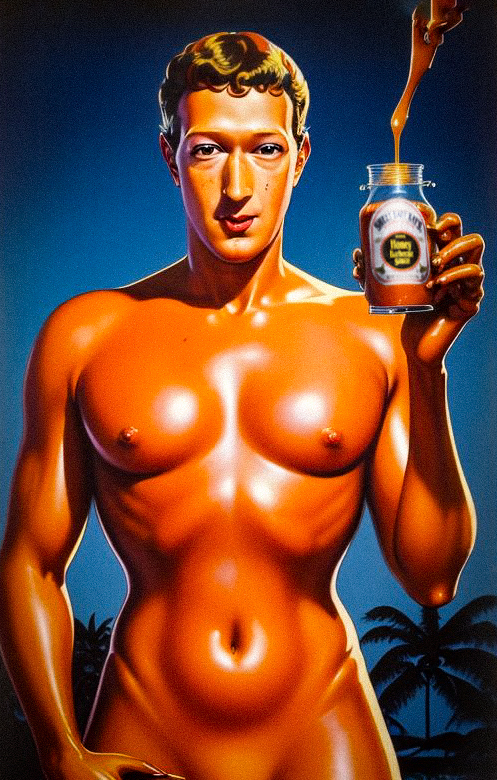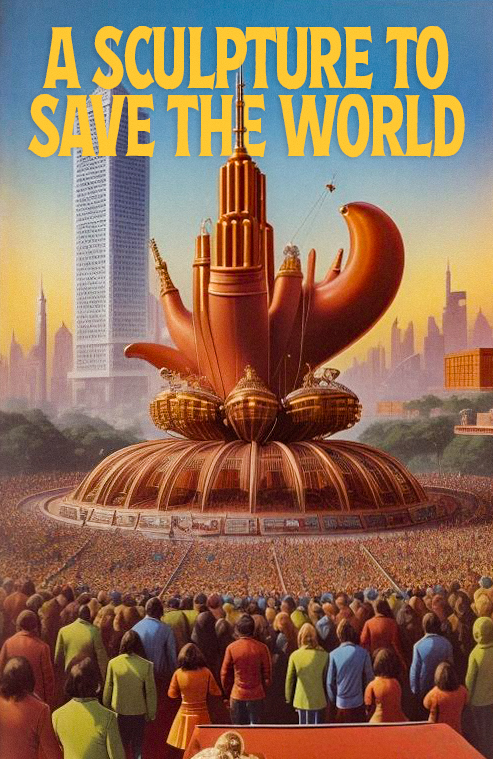
By Emiliano Settecasi March 7, 2024
It is no longer possible to be artistically relevant and financially self-sufficient. Not in Tampa, not in Miami or New York, not anywhere. Naturally I am now obligated to convince you of what I consider artistic relevance and why it is presently and indefinitely incompatible with financial success. And, hopefully, once you have finished reading this, the implication should be as clear to you as it is to me: this state of affairs is bad, and we ought to immediately begin organizing in real and more effective ways to change it. I also think it is crucial to point out that a judgment of something’s relevance is different than a judgment of that thing’s quality. For example, a perfect screwdriver is irrelevant if the only fasteners you have are nails. A gun in a world without bullets is a sculpture. Whether it is a good or bad sculpture has no bearing on its relevance; its relevance is derived from its function in time and space, and when and where it is relevant (necessary) for a gun to be a gun, you do not want to be holding a sculpture.
From August 8–11, 2023, multiple wildfires erupted and converged on the island of Maui, killing 101 people and destroying over 2,000 homes. In The New Yorker, Carolyn Kormann writes that Maui, including Lahaina, the area most affected by the fires, was not always as susceptible to drought and wildfires as it is now. When industrial agriculture was no longer as profitable without an enslaved work force after the Civil War, private sugarcane and later pineapple companies colonized Maui, rerouting waterways, and altering the natural landscape with infrastructure to support the cultivation of these cash crops. Additionally, “European ranchers introduced non-native, drought-resistant African grasses—guinea, molasses, and buffel—for grazing livestock.” When agriculture ultimately became less profitable there late last century, plantation owners abandoned the island, leaving invasive plant life to run wild, water diversions emptying into nowhere, and an economy dependent on Western tourism. In other words, rich people showed up, made some money turning paradise into a tinderbox, left to keep cooking the planet elsewhere, and then insisted they should be allowed to return periodically to pay the population they have terrorized a crumb of the worth of their looted resources to pretend they didn’t simply unleash horror upon them. And seven months ago that illusion literally went up in flames.
One incredibly rich person, however, has decided he’ll be staying in Hawaii long-term. In fact, right now as around 1500 families in Maui so far have left the island, a few islands over on Kauai, the wealthiest millennial—and it’s not even close—Mark Zuckerberg, Founder, Chairman, and CEO of Meta (Facebook, Instagram, WhatsApp), is building a $100 million, 1400 acre ranch, complete with an underground bunker and its own food and energy sources. Unlike his Baby Boomer and Gen X class compatriots, Jeff Bezos and Elon Musk, who seem to think they’ll be able to retire to outer space, Zuckerberg is building a more practical (cheaper) doomsday compound on an island. As the true cost of industrial development has made it so many Native Hawaiians cannot afford to live on the islands anymore, Zuckerberg has calculated that he cannot afford to live anywhere else.
And do you know why he can’t? Because the bulk of the poor indigenous people nearby, especially the angry ones he won’t be able to bribe and silence with wages for building and maintaining his fortress, will continue to see their lives become more precarious the longer the infinite growth machine with the Harvard dropout at its helm warms and trashes the planet, forcing them to move somewhere more “stable” like the continental US or Europe until the sheer number of refugees ends up making stability even in those areas impossible and the only secure place on Earth is his $100 million bunker in the part of the world the masses will not be able to return to for revenge because rich people like him forced them out while they could still blame the weather.

To my fellow struggling artists trying to innovate with limited means, you may be struggling because the rich are not buying irrelevant shit like your artwork anymore, they are buying your house. They are buying your neighborhood. The building you work in. Your city. All of your politicians. And everything you need to stay alive on this planet. And holding it ransom to make you toil to keep them comfortable as they air-fry our blue marble. This only leads to apocalypse. Our money is only going in one direction: toward the rich, in the form of rents, and the profits derived from selling other essentials, and them owning all of the ways to make essentials. And with all that money, they’ve purchased the government. So when we pay those supreme middlemen our taxes, the middlemen give it straight back to the rich in subsidies and contracts, who then pay them to tell us we’re also on the hook for the debt they went into giving the rich not just your money, but all the new money they’ve printed in response to every disaster since 2008. If only the rich have money, and the only way to temporarily wrestle it away from them is to appeal to their base comforts or provide a strategic benefit to them, we are only aiding and abetting our own genocide, because the outcome of their strategy is genocide. You might ask me to adjust my tinfoil hat if the story of the Maui fire doesn’t sound like it can happen to you, or if we weren’t presently watching a mostly-European-right-wing-religious-extremist-settler-colonial-apartheid state commit genocide against a poor occupied indigenous population who have refused to acquiesce to the comfort of their oppressors at their own expense.
The day that Mark Zuckerberg’s Hawaiian panic room becomes relevant, society has collapsed. We don’t know what comes after that necessarily, but the more the planet heats, plenty of other types of life will pay for the sins of our most gluttonous fellow humans and go extinct with us. To my fellow artists: do you think whatever you are doing in your studio that a rich person owns, on your stages that rich people own, in the theaters that they own, on the websites that they own, is going to be relevant when Mark Zuckerberg grills his first Hawaiian brisket underground and douses it with a bottle from his lifetime supply of Sweet Baby Ray’s? Grow up. Again, I’m not saying your artwork is good or bad. It just literally won’t matter. And if a rich person likes it currently, you better believe it already doesn’t.
On the night of the United State’s biggest cultural event, our proxy forces in Israel were “Hail Mary” passing American bombs into scrums of children in the endzone of the Gaza strip. Relevant warplanes flew over Gaza as sculptures flew over Allegiant Stadium. That same night two of the foremost artists in the world—white liberal America’s sweetheart with an individual carbon footprint 1800x bigger than the global average and a bipolar antisemite who said he loved Hitler—were competing for the most streams on Spotify. Do I have to tell you which of these innovators in their field won the night or have you realized we all lost? Taylor Swift and Ye are not the best artists, but they are about the best that extinction-era neoliberal capitalism will allow: endlessly petty, absolutely no threat to real power, and soon to be entirely forgotten unless vinyl copies of Midnights or Vultures make it into Zuckerberg’s Ark.

We might disagree on what an artist’s responsibilities are, but even that discussion has not been relevant for some time now. As a curator, however, I do believe I have a responsibility to expose my community to relevant artworks. So imagine how crushed I am after quitting my job to start an art space only to come to the conclusion a year in that there aren’t really any relevant artworks being made.
The state of the arts is irrelevant! I suggest you consider purchasing a firearm and learning how to use it properly and responsibly. Or help me make a sculpture that can save the world. It brings me no pleasure to conclude that at this moment in history if your work isn’t materially contributing to an effort to stop our idiot elite from cooking us alive, you’re just selling out. Selling out yourself, your neighborhood, your city, us all. And we can’t afford who’s buying.
If you would like to work together to try to be relevant, the Department of Contemporary Art Tampa, FL is at your service.
Emiliano Settecasi is the Founder, Director, Artist, Curator, and Designer behind Department of Contemporary Art Tampa, FL.
